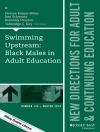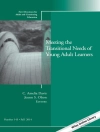Developed in the context of health sciences education in the late 1960s, problem-based learning (PBL) is now widely deployed as an education methodology. Its problem-solving, collaborative, student-centred ethos is seen as a more appropriate system of pedagogy than earlier ‘chalk-and-talk’ modes. Focusing on its use in clinical education, this collection of recent scholarship on PBL examines the ways in which PBL is both conceived and implemented in clinical education. The work has a dual emphasis, research-driven on the one hand, while on the other assessing new methodologies to explore how problem-based curricula support the achievement of students’ learning outcomes in the context of clinical education.
The chapters draw on studies that explore PBL both theoretically and empirically. The volume’s eclecticism capitalises on the growing body of empirical research into PBL evaluations. It balances this with studies analysing the relatively new area of discourse-based research on PBL-in-action, whose focus has been to interrogate the ‘how’ of student learning in curricula with PBL content.This publication will be of interest to clinical teachers, curriculum designers and those interested in innovations in the scholarship of teaching and learning in PBL curricula.
Spis treści
Part I Introduction .- 1. Learning Theories and Problem-based Learning.- Part II Investigating the Achievement in Student Learning Outcomes in PBL Programmes .- 2. A Backward Glance, the Forward Gaze: Evaluation in Problem-based Courses.- 3. Comparisons in Basic Science Learning Outcomes between Students in PBL and Traditional Dental Curricula at the Same Dental School.- 4. Experiences from Two Swedish Speech and Language Pathology Education Programmes Using Different Approaches to Problem-based Learning.- 5. The Influence of Two PBL Curricula Contexts on First-year Students’ Understandings of PBL, Approaches to Learning and Outcomes.- 6. Learning Styles and Academic Outcomes: A Longitudinal Study on the Impact of a Problem-based Learning Curriculum.- Part III Researching New Technologies for PBL Curriculum Design.- 7. Multimodality in Problem-based Learning (PBL): An International Ethnography.- 8. The Changing Face of Problem-based Learning: Social networking and Interprofessional Collaboration.- 9. Effects of Video Triggers on the PBL Process.- Part IV Exploring ‘Inside’ the PBL Tutorial Process .- 10. Japanese First-year PBL Students’ Learning Processes: A Classroom Discourse Analysis.- 11. Sounds of Silence: Examining Silence in Problem-based Learning (PBL) in Asia.- 12. Getting on with Each Other: PBL Group Dynamics and Function.- 13. PBL Tutorials in a Hybrid Curriculum: Opportunities and Challenges.- Part V Conclusion .- 14. The Next Generation: Research Directions in PBL.- Appendices.- Index.












